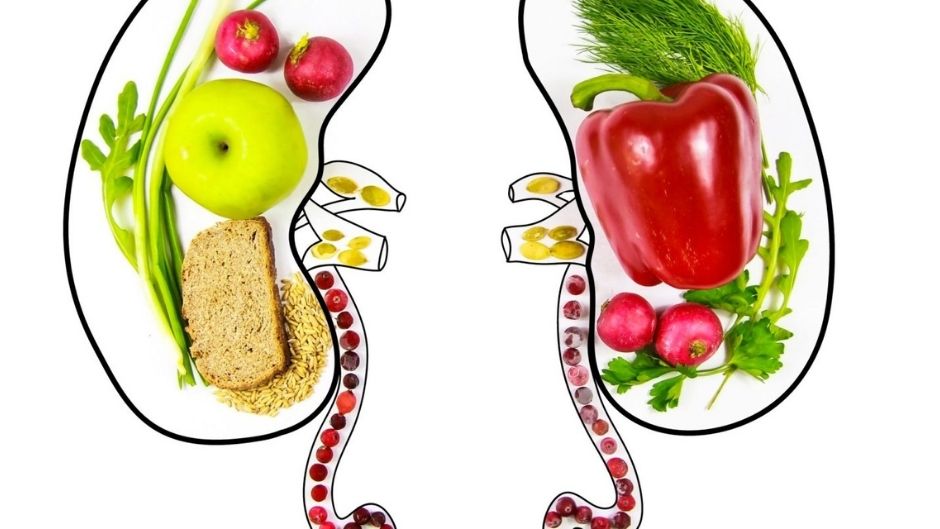Dehydration is the biggest cause of kidney stones formation; however, diet, lifestyle habits, and hereditary factors contribute equally. There are multiple studies conducted to find out the correlation between consuming animal protein and the risk of getting kidney stones. The results have established the fact that excessive consumption of meat, dairy products, and salt contributes to increasing urine uric acid.
There are numerous myths and misconceptions, which associates kidney stones to whole food plant-based diets. The reason behind this is that the majority of people (about 70%) suffer from calcium oxalate stones. Since oxalate is found in vegetables, one should stop consuming vegetables. But, in reality, it is not more than nutritional lore because:
- All vegetables do not contain oxalate.
- If the oxalate and calcium level in the diet is balanced, they do not reach the kidneys; instead, they stay in our gut.
- Diet rich with meat protein increases the risk of kidney stones.
- Several other factors, including dehydration, excessive vitamin C, and increased salt usage, contribute equally.
Factors that Contribute to Kidney Stones
There are multiple environmental, lifestyle, and nutritional factors that contribute to the formation of kidney stones.
Dehydration
Water is essential for so many bodily functions to keep us healthy. It not only transports the vital nutrients to all cells but is also pivotal in flushing out toxins and waste.
Our urinary tract is responsible for excreting this waste, and if you are not sufficiently hydrated, you have more chances of getting kidney stones.
Gender and Age
As per multiple studies, the risk of getting kidney stones increases with age. It is a long-term disease that develops over time and usually appears at a later stage of life. The highest rate of kidney stones is found amongst the age group of 40 – 65.
Due to higher body weight, more caloric intake, and increased consumption of meat, fish, poultry, and table salt, men are more prone to kidney stone formation.
Obesity
Similar to multiple other chronic diseases, obesity and higher body mass are factors that contribute greatly in the formation of kidney stones. The countries with higher obesity rates, such as United States, United Kingdom, Australia, and Germany, have higher kidney stones rates.
If you take a closer look at the dietary habits of these countries, you will find a higher consumption of sugary foods and meat products. Moreover, less consumption of plant-based diets also results in higher obesity rates.
Physical Activity
The inability to keep up with an active lifestyle also results in stone formation. The frequency and intensity of physical activity not only prevent the formation but sometimes contribute to curing the stones.
The more active you are, the more you will sweat. Regularly exercising is also an effective way of maintaining optimal body weight and increase muscle and bone mass.
Diet and Nutrition
It is a fact that a high-protein and low-carbohydrate diet increases the risk of forming kidney stones as it reduces your body’s ability to absorb calcium. Moreover, foods with high sugar content and artificial sweeteners increase the risk of stone formation.
On the contrary, increasing the number of vegetables, fruits, and plant-based whole foods has shown great results in preventing and even curing stone formation.
Dietary Habits to Preventing and Curing Kidney Stones
A study conducted in 2018 by the Harvard Medical School revealed that a diet rich in vegetables and fruits with adequate water intake may lower the risk of stones by 50%.
- Limit high-oxalate foods– beans, beets, berries, coffee, rhubarb, spinach, tea, and wheat bran.
- Eliminate animal protein from the diet– beef, chicken, poultry, and milk products increase the risk of stone formation.
- Reduce sodium– high-sodium foods increases the amount of calcium in your urine. Try reducing the quantity of table salt in your food.
- Increase plant-based calcium intake– calcium reduces the amount of oxalate; thus, reducing the risk of stone formation.
- Increase hydration– keep yourself hydrated by increasing the quantity of fluids throughout the day.
- Stop consuming sugar– sugar increases the chances of diabetes, and high blood pressure, both contribute significantly to stone formation.
- Limit alcohol consumption– excess drinking increases the risk of getting kidney stones by five times.
The Final Takeaway
Reducing animal protein, sodium, and sugar intake decrease the chances of getting kidney stones. Keeping yourself adequately hydrated is essential to reduce the chances of crystal formation in the urinary tract. Moreover, adding more fruits and vegetables, such as lemons and oranges, prevent stone formation.
Apart from nutritional factors, being physically more active, limiting alcohol consumption, and avoiding tobacco usage have a significant effect on your kidney’s health.









































Coffee is a low oxalate beverage at 1mg per cup. Also most berries other than raspberries are low oxalate. Additionally, your high oxalate foods should include nuts and seeds, chocolate, and potatoes.